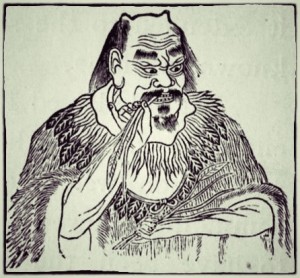Cool, Acrid Herbs that Release the Exterior
Taste: Bitter, acrid Temperature: cool Channels Entered: Gallbladder, Liver, Pericardium, San Jiao (Shao Yang and Jue Yin)Dosage: 3-9g (up to 18g)
Cautions & Contraindications:
- Should not be used when the true yin has been severely damaged, as it is a rising and dispersing herb.
- Do not use with hyperactivity of Liver yang.
Actions & Indications:
- Resolves lesser yang disorders and reduces fever: for alternating chills and fever accompanied by a bitter taste, flank pain, irritability, vomiting, and a stifling sensation in the chest. Also used as an auxiliary herb for heat from deficiency. (9g)
- Spreads Liver qi and relieves constraint: for constrained Liver qi: with such symptoms as dizziness, vertigo, chest and flank pain, emotional instability, or menstrual problems. (6g)
- Harmonizes the Liver and Spleen: for symptoms such as epigastric and flank pain, stifling sensation in the chest, abdominal bloating, nausea, and indigestion.
- Raises and lifts the yang qi, specifically the clear qi of the Stomach and Gallbladder: for prolapse, sensations of dragging downward, hemorrhoids, vaginal discharge, bleeding or exhaustion (all of these symptoms indicate an abnormal descent of qi). (3g)
Formulas:
- Chai Hu Gui Zhi Gan Jiang
- Chai Hu Shu Gan Tang
- Xiao Yao San
Commentary:
- Chai Hu is the primary herb to treat Liver qi stagnation. It releases constrained Liver qi and Shaoyang disorders.
- Strongly lifts and ascends to teat prolapse (with Sheng Ma and Huang Qi).
- Pao Zhi: vinegar fry to guide to the Liver. Prevents the Liver from attacking other organs.
- Few herbs enter the San Jiao channel. Others include Mu Xiang, Zhi Zi, and Xiang Fu.



